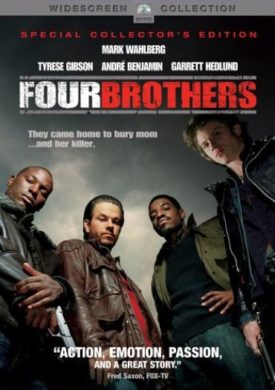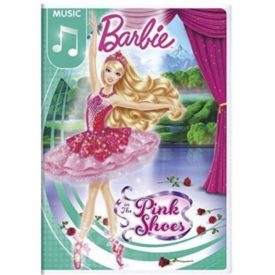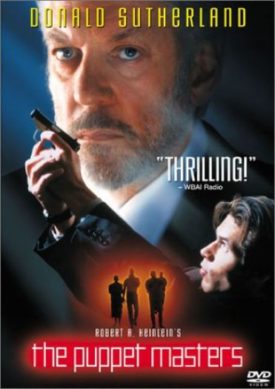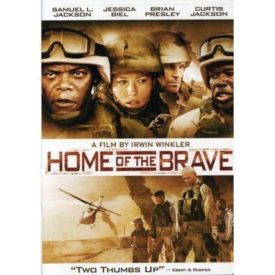- You cannot add "DVD Children's Movies 4 Pack Fun Gift Bundle: Curious George: Be My Valentine, The Case of the Coin Purloined, Babe: Pig in the City, Adventures in Zambezia" to the cart because the product is out of stock.
Glory (DVD)
Other Marketplace Price: $17.99Sale Price:$10.49
- Ships Same Day.
- FREE Shipping (U.S. Delivery).
- International Shipping (See Shipping Chart Below).
1 in stock
| Shipping US FREE SHIPPING |
FREE Shipping! |
|---|---|
| Shipping US Expedited 2-3 Day |
US Shipping: $14.99 Unlimited Items. |
| Shipping Canada |
Canada Shipping: Flat $34.99. |
| Shipping Int'l Standard | International Shipping: $64.99 Worldwide. |
| Shipping Local Pick Up |
FREE Local Pick Up in Store |
| Glory: Original Motion Picture Soundtrack | |
|---|---|
| Film score by James Horner | |
| Released | November 1, 1990 |
| Length | 43:21 |
| Label | Virgin |
Glory s original motion picture soundtrack was released by Virgin Records on January 11, 1990. The score for the film was composed and orchestrated by James Horner in association with the Boys Choir of Harlem. Jim Henrikson edited the film s music, while Shawn Murphy mixed the score.
Marketing
Monograph
A nonfiction study of the regiment first appeared in 1965 and was republished in paperback in January 1990 by St. Martin s Press under the title One Gallant Rush: Robert Gould Shaw and His Brave Black Regiment. The book, by Peter Burchard, expands on how the 54th Massachusetts developed as battle-ready soldiers. Summarizing the historical events, the book provides events surrounding the aftermath of the first Black Union regiment and how it influenced the outcome of the war.
Release
Critical response
On Rotten Tomatoes, the film holds an approval rating of 94%, based on 52 reviews, with an average rating of 7.9/10. The site s consensus states: Bolstered by exceptional cinematography, powerful storytelling, and an Oscar-winning performance by Denzel Washington, Glory remains one of the finest Civil War movies ever made.
Film critic Vincent Canby s review in The New York Times stated, gives his most mature and controlled performance to date ... an actor clearly on his way to a major screen career ... The movie unfolds in a succession of often brilliantly realized vignettes tracing the 54th s organization, training and first experiences below the Mason-Dixon line. The characters idiosyncrasies emerge . Roger Ebert from the Chicago Sun-Times gave the film three-and-a-half stars out of four, calling it a strong and valuable film no matter whose eyes it is seen through . He believed the production design credited to Norman Garwood and the cinematography of Freddie Francis paid enormous attention to period detail .
Watching Glory, I had one recurring problem. I didn t understand why it had to be told so often from the point of view of the 54th s white commanding officer. Why did we see the black troops through his eyes — instead of seeing him through theirs? To put it another way, why does the top billing in this movie go to a white actor?— Roger Ebert, writing in the Chicago Sun-Times
Peter Travers of Rolling Stone was not impressed at all with the overall acting, calling Broderick catastrophically miscast as Shaw . Alternatively, Richard Schickel of Time described the picture by saying, the movie s often awesome imagery and a bravely soaring choral score by James Horner that transfigure the reality, granting it the status of necessary myth . Desson Howe of The Washington Post, pointed out some flaws that included mentioning Broderick as an amiable non-presence, creating unintentionally the notion that the 54th earned their stripes despite wimpy leadership .
James Berardinelli writing for ReelViews, called the film without question, one of the best movies ever made about the American Civil War , noting that it has important things to say, yet it does so without becoming pedantic . Rating the film four stars, critic Leonard Maltin wrote that it was grand, moving, breathtakingly filmed (by veteran cinematographer Freddie Francis) and faultlessly performed , calling it one of the finest historical dramas ever made .
Gene Siskel of the Chicago Tribune gave the film a thumbs up review, saying, like Driving Miss Daisy, this is another admirable film that turns out to be surprisingly entertaining . He thought the film took on some true social significance and felt the actors portrayed the characters as more than simply black men . He explained: They re so different, that they become not merely standard Hollywood blacks, but true individuals .
American Civil War historian James M. McPherson stated the film accomplished a remarkable feat in sensitizing a lot of today s black students to the role that their ancestors played in the Civil War in winning their own freedom .
Accolades
The film was nominated and won several awards in 1989–90. A complete list of awards the film won or was nominated for are listed below.
| Award | Category | Nominee | Result |
|---|---|---|---|
| 62nd Academy Awards | Best Actor in a Supporting Role | Denzel Washington | Won |
| Best Art Direction | Norman Garwood, Garrett Lewis | Nominated | |
| Best Cinematography | Freddie Francis | Won | |
| Best Film Editing | Steven Rosenblum | Nominated | |
| Best Sound | Donald O. Mitchell, Gregg Rudloff, Elliot Tyson, Russell Williams II | Won | |
| 41st ACE Eddie Awards | Best Edited Feature Film | ———— | Won |
| 44th British Academy Film Awards | Best Cinematography | Freddie Francis | Nominated |
| British Society of Cinematographers Awards 1990 | Best Cinematography | Won | |
| Casting Society of America Artios Awards 1990 | Best Casting for Feature Film, Drama | Mary Colquhoun | Nominated |
| 47th Golden Globe Awards | Best Motion Picture – Drama | Freddie Fields | Nominated |
| Best Director | Edward Zwick | Nominated | |
| Best Screenplay | Kevin Jarre | Nominated | |
| Best Supporting Actor – Motion Picture | Denzel Washington | Won | |
| Best Original Score | James Horner | Nominated | |
| 33rd Grammy Awards | Best Instrumental Composition Written for a Motion Picture or for Television | Won | |
| Kansas City Film Critics Circle Awards 1989 | Best Film | ———— | Won |
| Best Director | Edward Zwick | Won | |
| Best Supporting Actor | Denzel Washington | Won | |
| NAACP Image Awards 1992 | Outstanding Motion Picture | ———— | Won |
| Outstanding Supporting Actor | Denzel Washington | Won | |
| 1989 National Board of Review of Motion Pictures Awards | Best Picture | ———— | Nominated |
| 1989 New York Film Critics Circle Awards | Best Supporting Actor | Denzel Washington | Nominated |
| 1990 Political Film Society Awards | Human Rights | ———— | Nominated |
| Writers Guild of America Awards 1989 | Best Adapted Screenplay | Kevin Jarre | Nominated |
American Film Institute Lists
- AFI s 100 Years...100 Movies - Nominated
- AFI s 100 Years...100 Thrills - Nominated
- AFI s 100 Years...100 Heroes and Villains: Private Silas Trip - Nominated Hero
- Private Silas Trip - Nominated Hero
- AFI s 100 Years of Film Scores - Nominated
- AFI s 100 Years...100 Cheers - #31
- AFI s 100 Years...100 Movies (10th Anniversary Edition) - Nominated
Box office
The film premiered in cinemas on December 14, 1989, in limited release within the US. During its limited opening weekend, the film grossed $63,661 in business showing at three locations. Its official wide release began in theaters on February 16, 1990. Opening in a distant eighth place, the film earned $2,683,350 showing at 801 cinemas. The film Driving Miss Daisy soundly beat its competition during that weekend opening in first place with $9,834,744. The film s revenue dropped by 37% in its second week of release, earning $1,682,720. For that particular weekend, the film remained in 8th place screening in 809 theaters not challenging a top five position. The film Driving Miss Daisy, remained in first place grossing $6,107,836 in box office revenue. Glory went on to top out domestically at $26,828,365 in total ticket sales through a 17-week theatrical run. For 1989 as a whole, the film would cumulatively rank at a box office performance position of 45.
Home media
Following its release in theaters, the film was released on VHS video format on June 22, 1990. The Region 1 DVD widescreen edition of the film was released in the United States on January 20, 1998. Special DVD features include: interactive menus, scene selections, widescreen 1.85:1 color anamorphic format, along with subtitles in English, Italian, Spanish and French. A Special Edition DVD of the Film was released on January 30, 2001.
A special repackaged version of Glory was also officially released on DVD on January 2, 2007. It includes two discs featuring: widescreen and full screen versions of the film; Picture-in-Picture video commentary by director Ed Zwick and actors Morgan Freeman and Matthew Broderick; a director s audio commentary; and a documentary entitled, The True Story of Glory Continues narrated by Morgan Freeman. Also included are: an exclusive featurette entitled, Voices of Glory, an original featurette, deleted scenes, production notes, theatrical trailers, talent files, and scene selections.
The Blu-ray disc version of the film was released on June 2, 2009. Special features include: a virtual civil war battlefield, interactive map, The Voice Of Glory feature, The True Story Continues documentary, the making of Glory, director s commentary, and deleted scenes. The film is displayed in widescreen 1.85:1 color format in 1080p screen resolution. The audio is enhanced with Dolby TrueHD sound and is available with subtitles in English, Spanish, French, and Portuguese. A UMD version of the film for the Sony PlayStation Portable was also released on July 1, 2008. It features dubbed, subtitled, and color widescreen format viewing options.
New
Freddie Fields, Kevin Jarre, Lincoln Kirstein, P.k. Fields, Peter Burchard, Pieter Jan Brugge, Robert Gould Shaw
Sony Pictures Home Entertainment
1998
Adult
R
Sony Pictures Home Entertainment
DVD
Sony
0800177967
9780800177966
043396702899
1989
1990-02-16
122
2h 2min
Won 3 Oscars, 14 wins & 18 nominations total
Edward Zwick
Kevin Jarre, Lincoln Kirstein, Peter Burchard
Matthew Broderick, Denzel Washington, Cary Elwes
Pieter Jan Brugge, Sarah Caplan, Freddie Fields, P.K. Fields, Ray Herbeck Jr.
James Horner
Freddie Francis
Steven Rosenblum
Mary Colquhoun
Norman Garwood
Keith Pain, Dan Webster
Garrett Lewis
Francine Jamison-Tanchuck
Everett Burrell, Elle Elliott, Carl Fullerton, Julian Ledger, Linda Peterson, Ron Pipes, Francisco X. Pérez, Sean Rodgers, Mike Trcic, Chris Yagher, Kevin Yagher, Vera Yurtchuk
Pieter Jan Brugge, Carol Dantuono, Tom Luse, Ted Zachary
Vebe Borge, Joseph M. Caracciolo Jr., Karen Estelle Collins, Skip Cosper, Louis D Esposito, Douglas Dean III, Dan Lerner, Douglas S. Ornstein, Robert Rothbard, Richard Dub Wright
Guy Barnes, Tony Belmonte, Kelly Farrah, Bobby Joe Garren, Doug C. Lewis, Mike Margaros, Ben Massi, Bernard Alan McPherson, Alan Munro, Andrew Precht, John Root, Marvin Salsberg, Jeff Spellerberg, Mark Woods, Dave Barnes, Peter C. Clarke, Ken Counts, Robert Engle, Patrick Fuhrman, K. Drew Fuller, Paul Vincent Fusco, Jody Gaber, Scott Garrett, Margaret Hungerford, Amy McGary
Bill Abbott, Albert Aquino, Robert Batha, Bob Beher, Lon Bender, Weldon Brown, James Cavarretta, Laurel Doran, Dean Drabin, Sukey Fontelieu, George Fredrick, Scott Martin Gershin, Avram D. Gold, Kevin Hearst, Devon Heffley Curry, Chris Hogan, Alan Holly, Jack Keller, Chet Leonard, Steve Mann, Joseph A. Mayer, Therese McLaughlin, Lisa Miller, Donald O. Mitchell, Dan O Connell, Kelly Oxford, Dan M. Rich, Bill Rojas, Gregg Rudloff, Frank Smathers, David Spence, Wylie Stateman, Alicia Stevenson, Elliot Tyson, Kim Waugh, Russell Williams II, Marshall Winn, David W. Alstadter, Phil Hadaway, Mark Lanza, John Motyer, David Young
Phil Cory, Hans Metz, David Simmons, Ray Svedin
Syd Dutton, Bill Taylor
John Ashby, Bruce Paul Barbour, Alonzo Brown Jr., Alex Brown, Tony Brubaker, Harold Burns, Hank Calia, Eric Chambers, Carl Ciarfalio, Danny Costa, Scott Dale, Gregg Dandridge, Vince Deadrick Sr., Nick Dimitri, Greg Wayne Elam, Ousaun Elam, George Fisher, Ralph Garrett, Jerry Gatlin, Dale Gibson, Dick Hancock, Clifford Happy, Bill Hart, Orwin C. Harvey, Eddie Hice, Johnny Hock, Terry Jackson, Terry James, Jeff Jensen, Mike Johnson, Harold Jones, Melvin Jones, Steve Kelso, Wayne King, Paul M. Lane, Lane Leavitt, Al Lee, Irving E. Lewis, Danny Mabry, Eric Mansker, Anderson Martin, Rusty McClennon, Bufort McClerkins, Dwayne McGee, Bill McIntosh, Jimmy Medearis, Bob Minor, Rita Minor, Bennie Moore, Perry Nichols, Conrad E. Palmisano, Manny Perry, Jeff Ramsey, Mario Roberts, Ben Scott, John-Clay Scott, Mel Scott, John Sherrod, Al Simon, Lincoln Simonds, Jeff Smolek, Neil Summers, R.L. Tolbert, Tierre Turner, William Upton, Rock A. Walker, Marvin Walters, Richard Washington, Brian J. Williams, Guss Williams, James Winburn, Gene Witham, Ray Woodfork, Kevin Beard, Robert Giardina, Randy Tharpe
Ralph Brandofino, Allan Bullard, Keith Bunting, Andrew Casey, Don Cerrone, Marie Cosindas, Stephen Crawford, Vito DePalma, James P. Dolan, Fred H. Dresch, Bobby Earnhardt, Michael Fedack, Larry Huston, Carl Johnson, Stan Keitt, Steven Mann, Steve Mathis, Jeff Moore, Merrick Morton, Vinnie Nappo, Nick Nelson, Wade O Connor, Briggs Palmer, Douglas Pellegrino, Charles Quinlivan, C. Alan Rawlins, Riko Schatke, George Skelly, C. Ashley Sudge, David Wagreich, Joe D Alessandro, John R. Kaplan, David Larue, Brett Laumann, Larry McConkey, Scot A. Nederman-Paul, Scott Webb, William M. Weberg
Billy Dowd, Shay Griffin, Avy Kaufman, Donna Larson, Cynthia Stillwell
Frank Perry Rose, Paul A. Simmons Jr., Betty Jean Slater, Michael T. Boyd, Layne Brightwell, L. Robert Stanfield
Battle Davis, Tracey Featherston, Robert Frazen, Martha Huntley, Bob Noland, Brent White, Richard Garibaldi
Sheila Allen, John B. Griffin, Ned R. Shapiro
The Boys Choir of Harlem, Jim Henrikson, Jerry Kadovitz, Greig McRitchie, Shawn Murphy, Walter J. Turnbull, Tom Boyd, Tom Brown, Ron Hicklin, James Horner, Malcolm McNab, Bob Sanders, Sally Stevens, James Thatcher
Sidney Gecker, Connie Papineau
John Orlebeck, Bryce Guy Williams, Albert B. Cooper IV, Roy A. Grace, Chris Sibert, L. Robert Stanfield
B.H. Barry, Stan Bielowicz, Kathie Broyles, Karen Gordon, Peter Grandfield, Patti Hawn, Jeannie Jeha, Patrice A. Kiley, Kelly K. Learman, Maurice Lospinoso, Jimmy Medearis, Pat Newcomb, Doris Newman-Layne, Jeffrey A. Okun, Pattee Roedig, Paul Rousakis, Burton Sharp, Gwen Taylor-Stacy, Paul Warner, J. Walt Waters, Peter Anthony Andrews, Boris Beaubien, Sheila Cochran, Lynn K. D Angona, Louise Del Araujo, Boyce R. Doyle, Billy L. Butch Frank, John Guss, Mary Cay Hollander, Anthony S. Johnson, Dane Pizzuti Krogman, Barry J. Miller, Roger Ragland, Andy Redmond, Rodney Saulsberry, Leon Watkins, Kevin R. Young
Norman Bielowicz, Patricia Broderick, Wesley Buford, Mark Edwards, Dale Fetzer, Shelby Foote, Ray Giron, William Gwaltney, Ardie Ivy, Tom Kaufman, J. Leonard Ledbetter, Steve Lillard, Karl Luthin, Arthur Mendonza, Ron Nichols, Mike Riley, John P. Rousakis, Scott Smith, Richard F. Snow
Biography, Drama, History
TriStar Pictures, Freddie Fields Productions
USA
English
R
7.8
135655
78
Glory is a 1989 American historical war drama film directed by Edward Zwick about the 54th Massachusetts Infantry Regiment, one of the Union Army s earliest African-American regiments in the American Civil War. It stars Matthew Broderick as Colonel Robert Gould Shaw, the regiment s commanding officer, and Denzel Washington, Cary Elwes, and Morgan Freeman as fictional members of the 54th. The screenplay by Kevin Jarre was based on the books Lay This Laurel (1973) by Lincoln Kirstein and One Gallant Rush (1965) by Peter Burchard and the personal letters of Shaw. The film depicts the soldiers of the 54th from the formation of their regiment to their heroic actions at the Second Battle of Fort Wagner.
Glory was co-produced by TriStar Pictures and Freddie Fields Productions, and distributed by Tri-Star Pictures in the United States. It premiered in limited release in the United States on December 14, 1989, and in wide release on February 16, 1990, grossing $27 million worldwide on an $18 million budget. The film was nominated for five Academy Awards and won three, including Best Supporting Actor for Washington. It also won awards from the British Academy of Film and Television Arts, the Golden Globe Awards, the Kansas City Film Critics Circle, the Political Film Society, and the NAACP Image Awards.
$18,000,000 (estimated)
$63,661
$26,979,166
$26,979,166
19th century,american civil war,black soldier,military uniform,soldier






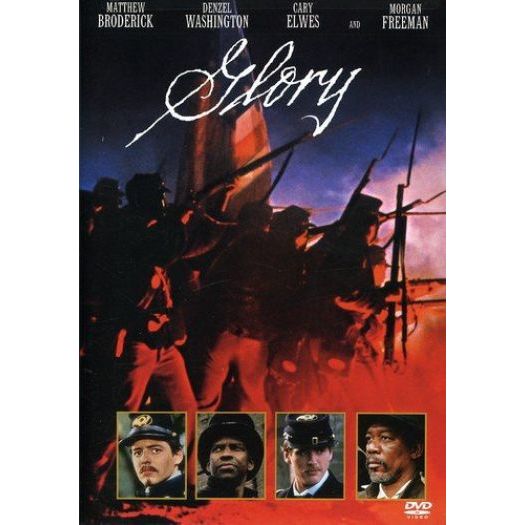
 Item is New Stock.
Item is New Stock. 